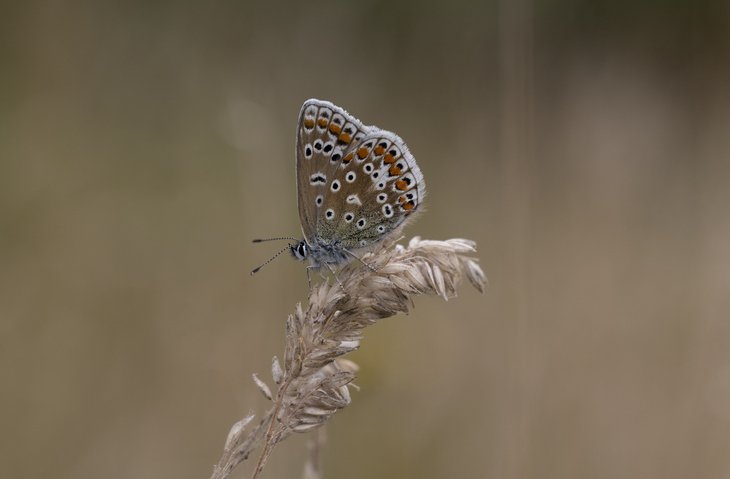The Bugs Matter Citizen Science Survey, led by conservation charities Kent Wildlife Trust and Buglife, found a 64% decline in insect numbers sampled on vehicle number plates between 2004 and 2022 across the UK, highlighting the urgent need for more, large-scale research on insects, and action to reverse declines in their abundance.
As world leaders meet to discuss global declines in biodiversity at the COP15 UN Convention on Biological Diversity, the 2022 Bugs Matter Survey results reveal further shocking declines in the numbers of flying insects in the UK, supporting the call that urgent action is needed to restore insect populations.
Increasingly abundance, not just diversity, is being recognised as a key driver in creating landscapes that are resilient to the impacts of the climate and nature crises.
Science by splatometer
The Bugs Matter Citizen Science Survey uses an innovative method for the large-scale surveying of flying insect abundance across the UK.
The survey runs every summer and involves citizen scientists recording the number of insect splats on their vehicle number plates following a journey.
The latest 2022 Bugs Matter report has found that the number of insects sampled by citizen scientists across the UK reduced by a worrying 64% between 2004 and 2022.
This is a 5% greater decline than that observed between 2004 and 2021.
It is not clear what proportion of this decline is due to the long-term trend or the result of record summer temperatures, but climate change links these two factors.
England, Northern Ireland and Wales saw continued declines into 2022, but figures for Scotland showed an upward trend.
‘For the second year running, Bugs Matter has shown potentially catastrophic declines in the abundance of flying insects. Urgent action is required to address the loss of the diversity and abundance of insect life. We will look to our leaders at COP15 for decisive action to restore nature at scale – both for wildlife, and for the health and wellbeing of future generations.’
ANDREW WHITEHOUSE
Head of operations at Buglife
Why we need insects
Insects make up the greatest proportion of life on Earth. They underpin food chains, pollinate most of the world’s crops and provide natural pest control services.
Without insects, life on Earth would collapse and the survivability of humanity on our planet would be threatened.
There are many causes of insect declines – these include the loss and damage to habitats, climate change, pollution of rivers and streams, use of pesticides and development of wild spaces.
There is growing evidence that these factors have caused significant declines in insect abundance in the UK and worldwide – with knock-on consequences for other wildlife and for people.
 Play Video about This Rock Might Just Save The World
Play Video about This Rock Might Just Save The World Play Video about Play 2 hours of rock
Play Video about Play 2 hours of rock Play Video about Play 2 hours of brook
Play Video about Play 2 hours of brook Play Video about Play 2 hours of sheep
Play Video about Play 2 hours of sheep











































